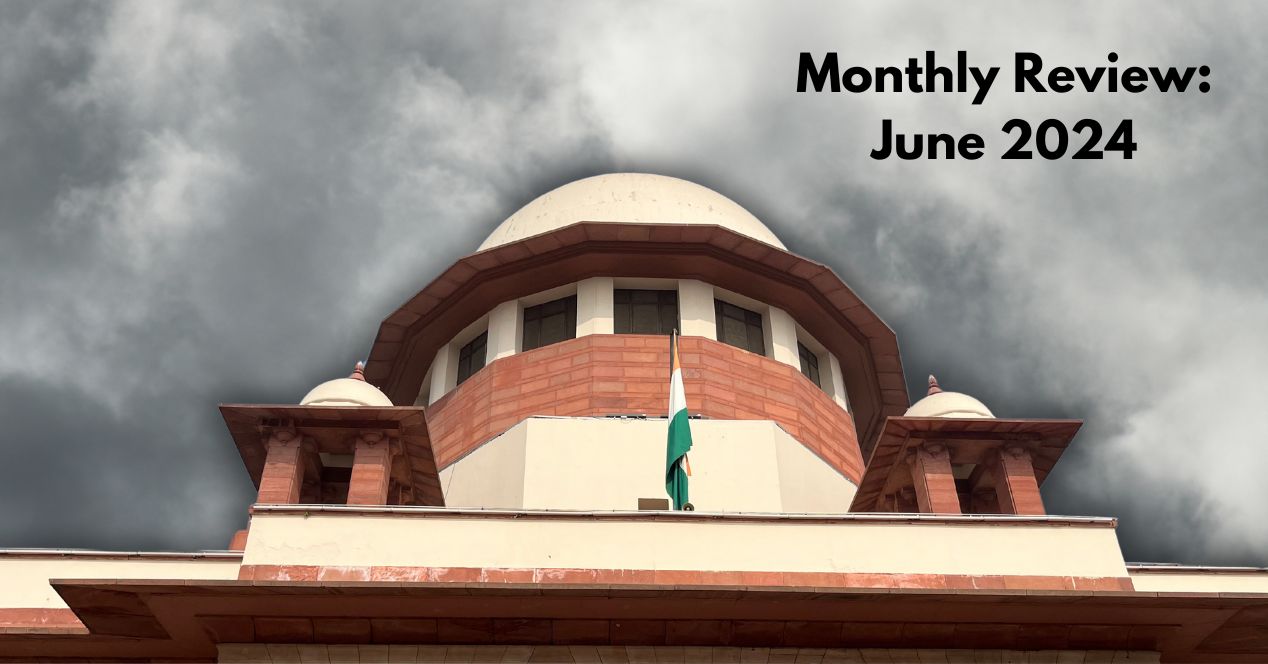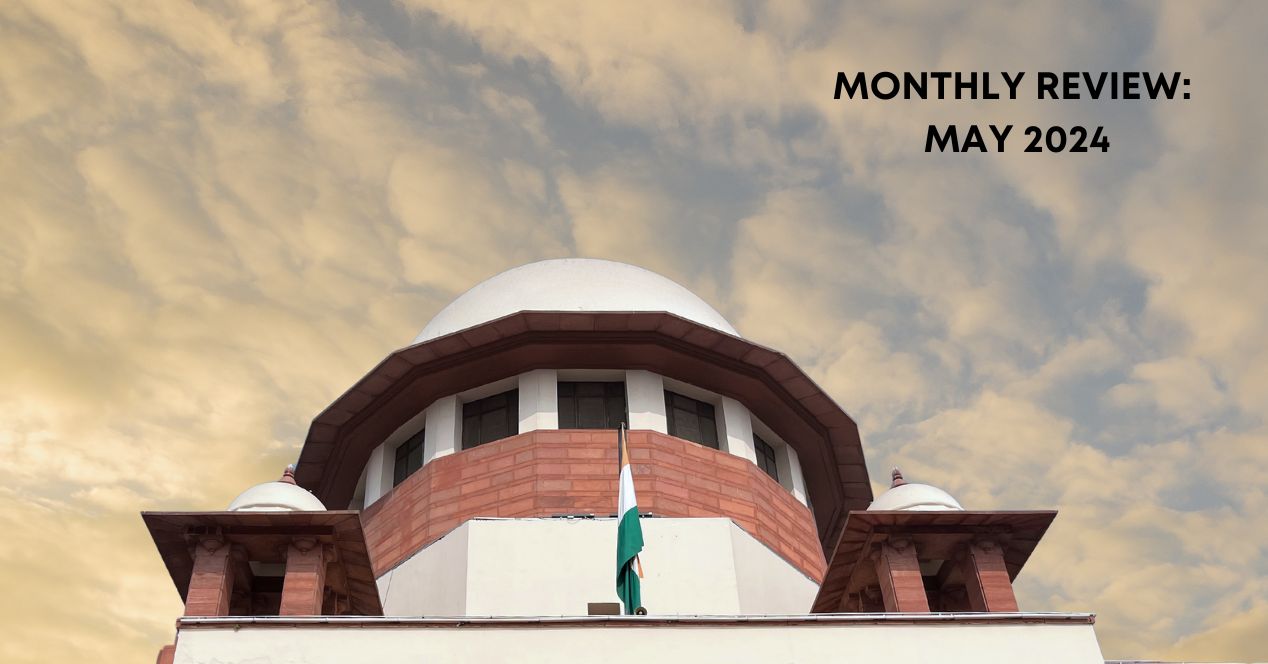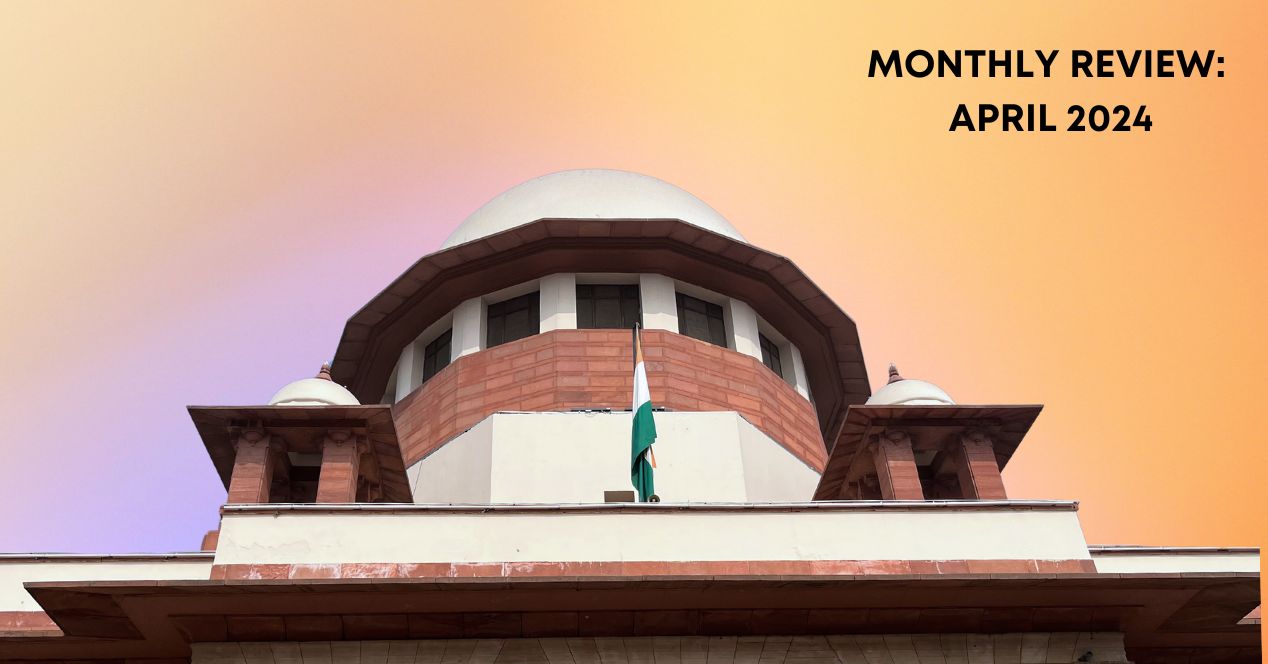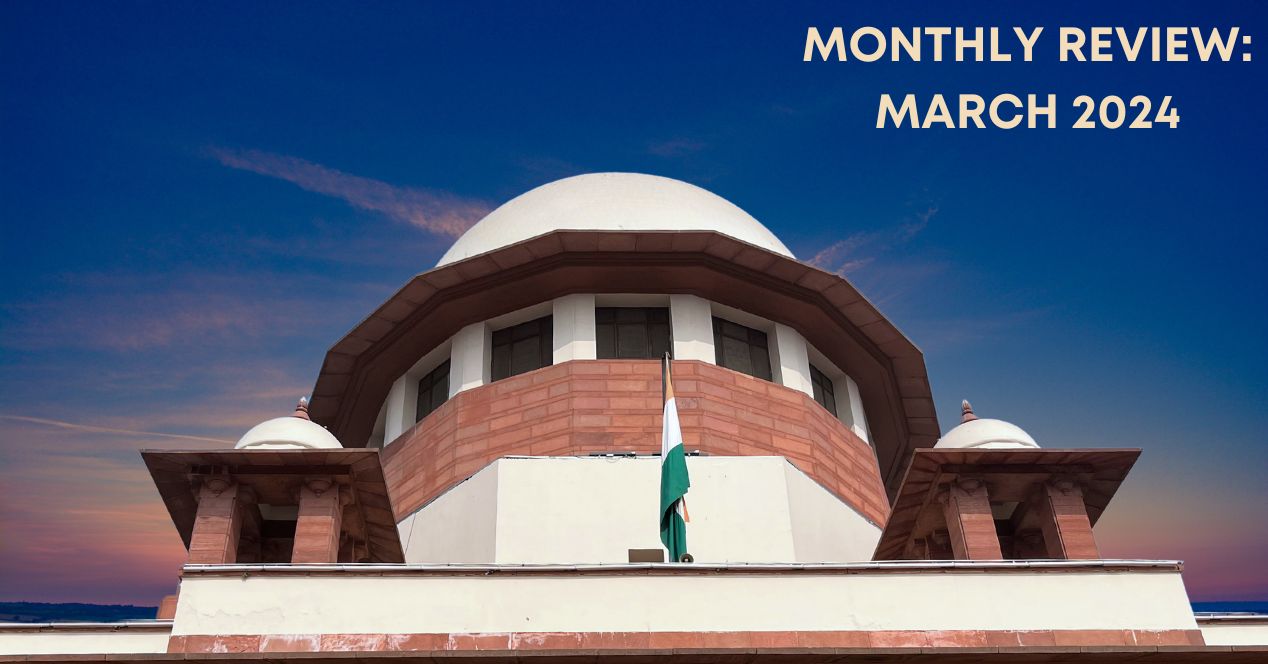Analysis
Monthly Review: July 2024
In July, after summer vacation, the top court closed a long-pending case on mineral royalty and denied a retest of the 2024 NEET UG exam
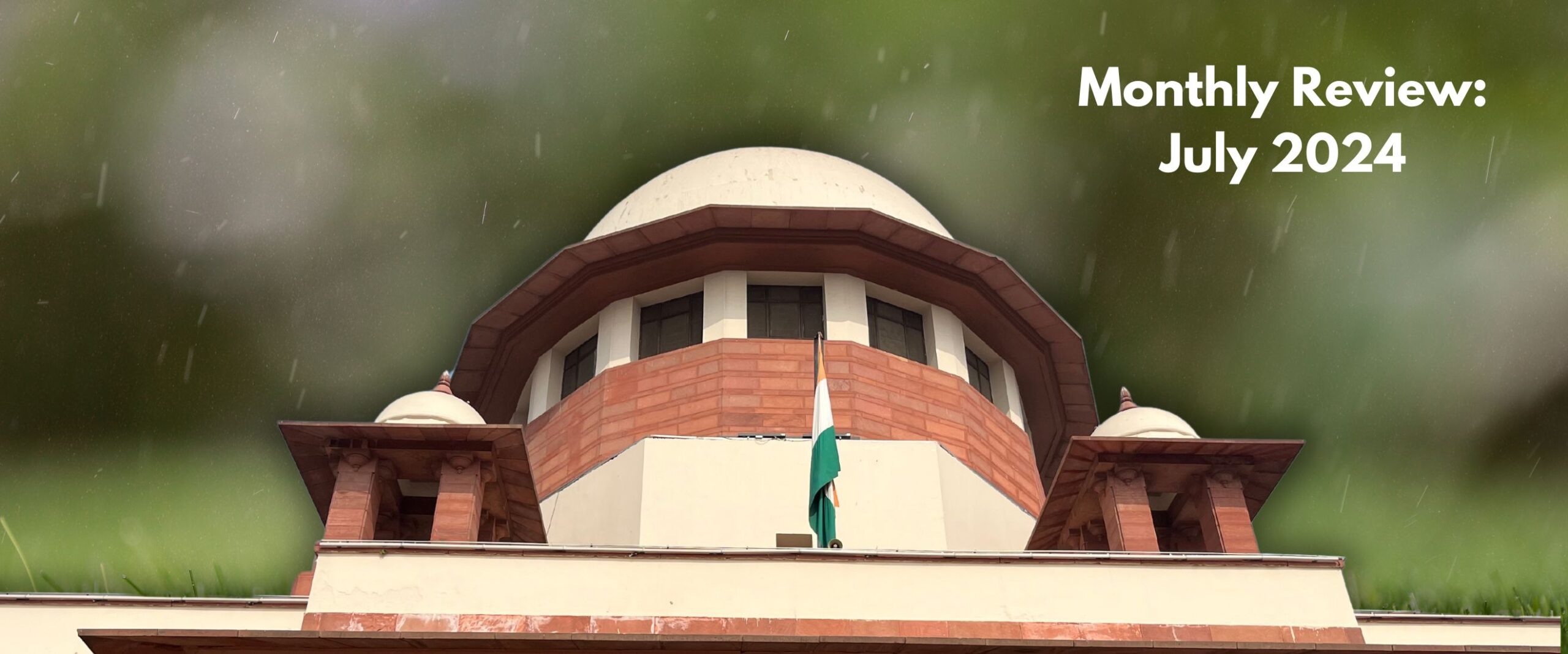
On 8 July 2024, the Supreme Court returned after a seven-week long summer vacation. The first month back was among the busiest of the year. In just the first week back, Division Benches of the Court delivered a flurry of decisions. The Supreme Court Collegium also recommended two new judges for elevation to the top court. They were appointed five days later. The month was also dominated by hearings challenging the 2024 NEET UG exam.
As the month ended, a nine-judge Constitution Bench pronounced the decision in a long-pending case on the state governments’ competence to impose taxes on mines and minerals. In July, the top court also kicked off a Special Lok Adalat to commemorate its Diamond Jubilee. The objective was to “facilitate amicable settlements of suitable pending cases”.
A new avenue for state revenue
On 25 July 2024, a nine judge Constitution Bench ruled that state governments’ have the sole power to impose taxes on mines and minerals in an 8:1 majority. It further held that “royalty”, under the Mines and Minerals (Development and Regulation) Act 1957 (MMDR Act) is “conceptually different from a tax.” Dissenting, Justice B.V. Nagarathna held that “royalty” as defined by the MMDR Act fulfilled the parameters of a “tax”. She also cautioned that the majority decision may lead to an uneven increase in the cost of minerals, and the prices of several products.
But the relief of closure after the decision was short-lived as the bench had not clarified whether the decision would apply prospectively or retrospectively. On the last day of July, the bench assembled again to determine this. Our judgement matrix and judgement summary present the outcomes of the decision in a simplified manner. In the days leading up to the judgement, we also did a summary ‘extraction’ of the high stakes involved in the decision.
Bail for two Chief Ministers
On 12 July 2024, a Division Bench granted interim bail to Delhi CM and Aam Aadmi Party leader Arvind Kejriwal. He was arrested by the Enforcement Directorate in March 2024 for his alleged involvement in the Delhi Excise Policy scam. The Court, however, referred the question about the legality of his arrest and crucial questions on the “need and necessity of arrest” under the PMLA to a larger bench. Despite this favourable order, Kejriwal continues to be in jail due to his arrest by the CBI on 26 June 2024.
On 29 July 2024, another Division Bench upheld the decision of the Jharkhand HC to grant interim bail to Jharkhand CM Hemant Soren. Even as the Union contended that the HC’s order had not taken into account certain witness statements, the Court found the order “well reasoned” and dismissed the challenge.
An ‘undisputed’ leak
On 23 July, a bench led by the Chief decided against holding a retest for the 2024 NEET-UG, the common entrance exam for medical undergraduate admissions across India. The exam, conducted on 5 May 2024, was marred by allegations of a paper leak and discrepancies in administration. After clubbing all ongoing challenges to the exam, the bench heard various arguments over four days in July.
On the first day of hearings, the Court noted that the paper leak was undisputed. On the following day of hearing, the Court directed the NTA to publish centre-wise results. Subsequently, the petitioners argued that ‘private operators’ linked to the coaching industry had tampered with the exam. The Court finally noted that there wasn’t enough evidence to say that the leak was “systemic” or widespread. The judges also held that a retest would have “cascading effects” on 23 lakh careers.
In the days leading up to the decision, we analysed the Court’s stance over the years on common entrance exams.
Beyond the ceiling
The by-product of the Bihar caste census were two amendment laws that sought to increase reservations for SC and ST communities in Bihar upto 65 percent. This is beyond the 50 percent ceiling on reservations established by the Court in Indra Sawhney v Union of India (1992). In June 2024, the Patna HC had declared both the laws as unconstitutional, finding that backward communities were “adequately represented” in government employment. It also stated that the Bihar government had taken a “frog leap” in passing the amendments since there was no “exercise or analysis” by an expert committee.
On 2 July, the Bihar government appealed against the decision at the top court, and on 29 July, a bench led by CJI Chandrachud briefly heard the matter. Even as the bench refused to stay the High Court’s judgement, they listed the case to be heard in September 2024.
Special Lok Adalat to celebrate 75 years
Starting from 29 July 2024, the Court organised a week-long Special Lok Adalat to commemorate its 75th year. The Court invited lawyers to bring cases that have an “element of settlement” for resolution. In this unusual arrangement geared towards efficient dispute resolution, judges, accompanied by Senior Advocates and Advocates on Record, sat at eye-level with the parties and conducted proceedings for three hours.
More diversity at the bench
On 18 July 2024, Justices N. Kotiswar Singh and R. Mahadevan were sworn in as judges to the top courts. Their appointments brought the Court to its full sanctioned strength of 34 judges. The Collegium recommended their names to ensure diversity at the bench. Justice Singh is the first Supreme Court judge from the state of Manipur. Justice Mahadevan hails from a backward community in Tamil Nadu.

